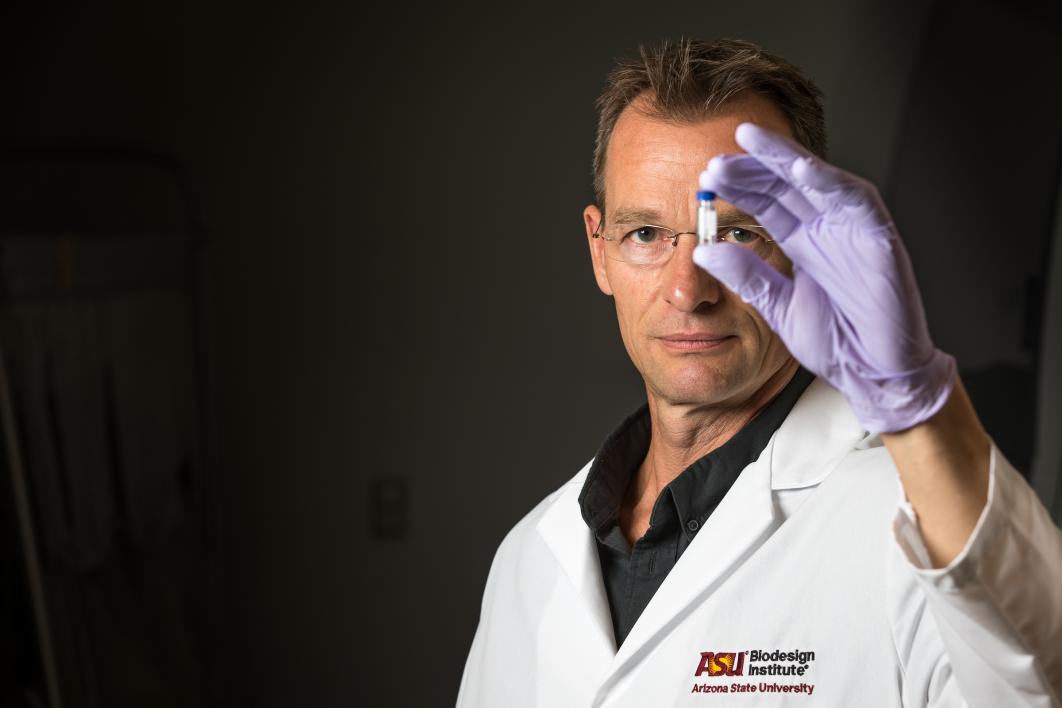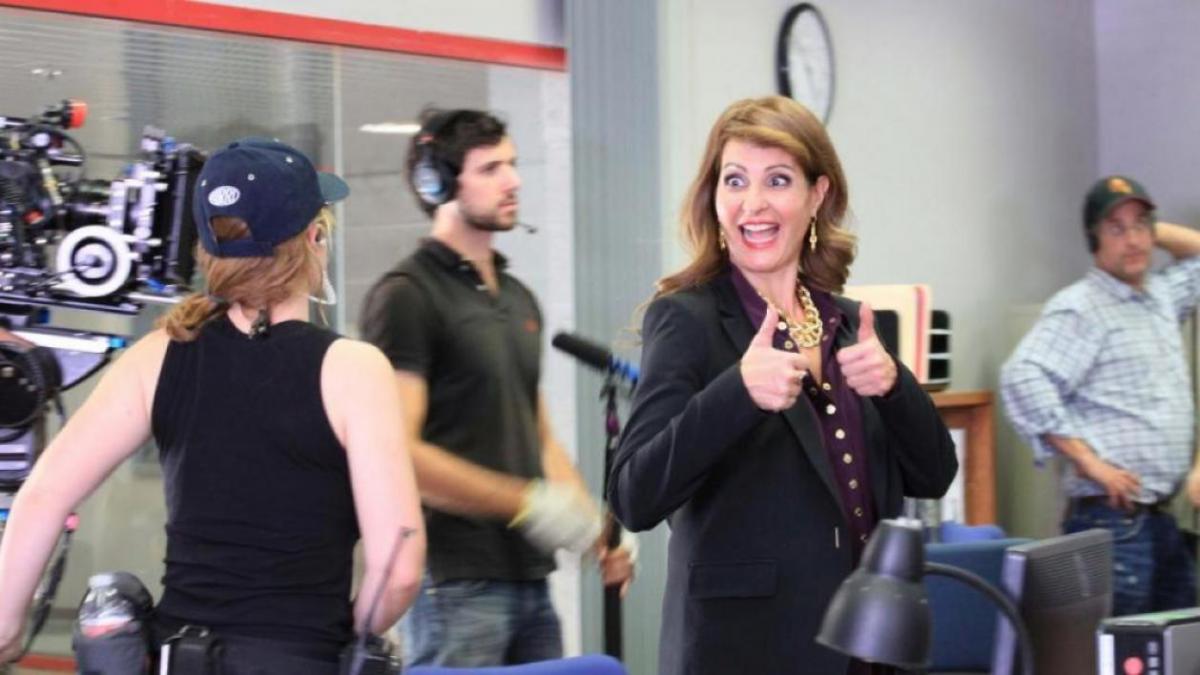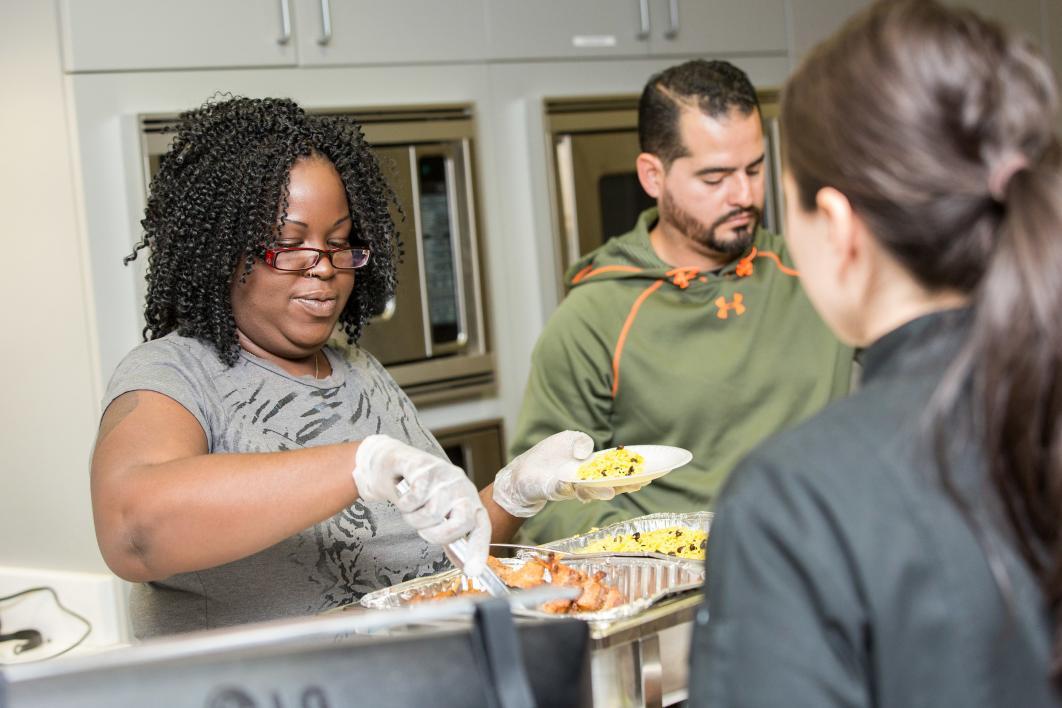For the third year in a row, Arizona State University tops the list of “most innovative schools” in the nation, recognizing the university’s groundbreaking initiatives, partnerships, programs and research.
U.S. News and World Report has named ASU as the most innovative university all three years it has had the category. The widely touted set of annual rankings by the news magazine, which compares more than 1,500 institutions on a variety of metrics, was released today.
ASU again topped the list based on a survey of peers. College presidents, provosts and admissions deans around the country nominated up to 10 colleges or universities that are making the most innovative improvements to curriculum, faculty, students, campus life, technology or facilities.
“Our colleagues at colleges and universities around the country are very interested in what we’re doing, and they pay close attention to all that we have been able to achieve,” said ASU President Michael M. Crow. “They know that all the cool stuff is going on at ASU.”
After ASU, the second and third most innovative universities were Stanford and the Massachusetts Institute of Technology, the same ranking as the previous two years. The next universities on the innovative list are Georgia State University, Carnegie Mellon University, Northeastern University, the University of Maryland at Baltimore County, the University of Michigan and Harvard University, with Duke and Portland State universities tied for 10th place.
The innovation ranking is due at least in part to a more than 80 percent improvement in ASU’s graduation rate in the past 15 years, the fact that ASU is the fastest-growing research university in the country and the emphasis on inclusion and student success that has led to more than 50 percent of the school’s in-state freshman coming from minority backgrounds.
“We now know that because of our innovation platform and our innovation culture, we’re just getting started,” Crow said. “Our pace of innovation is not just continuing, it’s accelerating.”
In addition, the magazine designated ASU as an “A+ School for B Students,” a list of universities that are not ranked. Schools on the list had to admit a meaningful proportion of applicants whose test scores and class standing put them in non-A territory but whose freshmen retention rate was at least 75 percent.
The “most innovative school” ranking wasn’t the result of any one specific program, but the holistic approach to inventing a new kind of university ASU has undertaken. Still, ASU has launched several recent unique initiatives. Here are a few:
|
Innovation in student experience: This semester, ASU opened the Fulton Schools Residential Community at Tooker House, a dorm that immerses students in an engineering education experience. Everything from maker labs to exposed building systems to “smart campus” technologies including Amazon Echo Dot devices is designed to enhance and extend what students learn in class. Photo by Charlie Leight/ASU Now
|
Innovation in partnerships: The new adidas/ASU Digital Education Partnership will provide scholarships to 100 adidas employees as part of the Global Sport Alliance, a collaboration that will shape the future of sport. Photo courtesy of adidas |
|
Innovation in the Sun Devil experience: ASU won the first-ever “Best Game Day Technology Experience” Award for its cutting-edge “Smart Campus” initiative, which uses the “internet of things” to generate data and alert the crowd on things like where to park and which exit to use. Photo by Charlie Leight/ASU Now
|
Innovation in well-being: The new Center for Mindfulness, Compassion and Resilience will bring together researchers, practitioners and educators to study and spread ideas. The center, launched with a $1 million donation, is led by Teri Pipe, ASU’s chief well-being officer. Photo by Charlie Leight/ASU Now |
|
Innovation in impactful research: ASU scientist Rolf Halden’s research into antimicrobials resulted in a brand-new federal ban on personal-care products that contain triclosan and triclocarban. Halden, director of ASU’s Biodesign Center for Environmental Health Engineering, started the research in 2002. Photo by Charlie Leight/ASU Now
|
Innovation in the arts: Adam Collis, a professor of film in the Herberger Institute for Design and the Arts, created Film Spark, a program that helps students launch a career in the film industry. Collis directed “Car Dogs,” a feature film financed, created and released this year in the Valley, with 85 students working on the crew. Courtesy photo |
|
Innovation in entrepreneurship: ASU launched “Prepped,” a free six-week program for local food start-ups to learn about finance, food safety and other topics. The course is part of the Office of Entrepreneurship and Innovation, which offers mentorship, programs, resources and outreach to the ASU community and to the greater Phoenix area. Photo by Charlie Leight/ASU Now
|
Innovation in leadership: The new School of Civic and Economic Thought and Leadership aims to create a new kind of leader, blending tradition and innovation and exploring questions of freedom and governance. It’s the 18th transdisciplinary school launched at ASU. Photo by Charlie Leight/ASU Now |
https://asunow.asu.edu/20170911-asu-news-asu-selected-nations-most-innovative-school-third-straight-year









